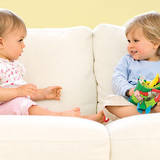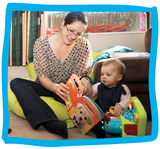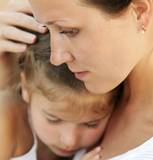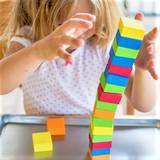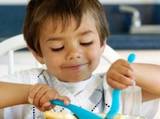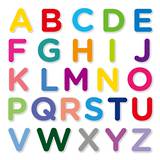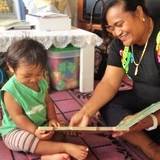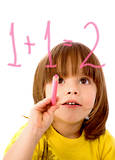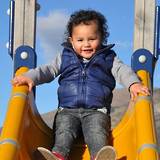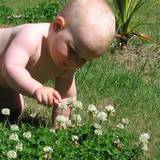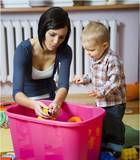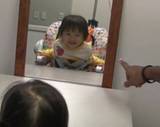Hot Topics
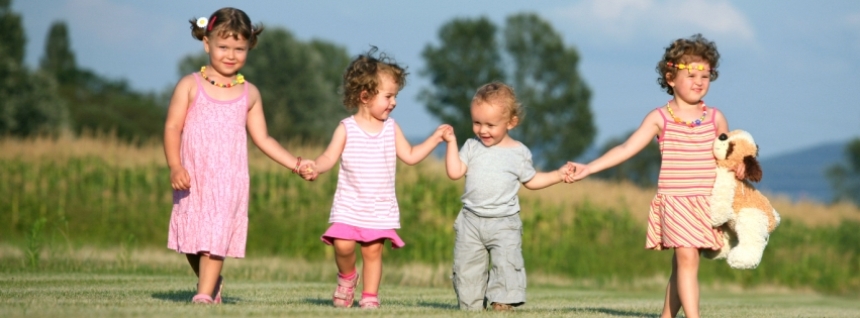
Our wide range of Hot Topics articles includes tips, advice, activities and more for parents with babies, toddlers and
preschoolers under 5 years old.
Check back regularly or Subscribe to our free weekly newsletter to receive our latest Hot Topics articles straight
to your inbox.
Hot Topics articles for parents with babies, toddlers & preschoolers
1. Hot Topics articles on Kids Activities, Kids Sports & Family ActivitiesCheck out our fun ideas on Things To Make and Things To Do with babies, toddlers and preschoolers. Plus we have some great articles on Kids Sports and Family Activities. Read our articles on Kids Activities, Kids Sports and Kids Travel section. |
2. Hot Topics articles on Kids Birthday PartiesRead our useful tips on how to plan your kids next party, how to save money, party entertainment and more for babies, toddlers and preschoolers. Read our articles on kids Birthday Parties. |
3. Hot Topics articles on Babies & Kids GearYoung children seem to need a lot of stuff! Our Babies & Kids Gear Hot Topics section covers it all from car seat safety to the benefits of cloth nappies, baby wearing, buying highchairs and everything in between! Read our articles on Babies & Kids Gear. |
4. Hot Topics articles on Child DevelopmentTake a look at our wide range of articles relating to child development from learning and play, to social and emotional development and communication skills. Read our articles on Child Development. |
5. Hot Topics articles on Kids Clothes & ShoesOur Clothing Hot Topics articles look at everything from kids clothes size charts to finding the right kids shoes, measuring kids feet, the benefits of merino wool, pyjama safety and lots more. Read our articles on Kids Clothes & Shoes. |
6. Hot Topics articles on Kids Food & Feeding TimeWe’ve got fussy eaters covered in our Food & Feeding Time section, plus tips on starting solids, basic cooking skills for preschool kids, family meal times, easy recipes and some kid-friendly cafes and restaurants for you to visit. Read our articles on Kids Food & Feeding Time. |
7. General Hot Topics articles for Babies, Toddlers & PreschoolersWe have all sorts of things covered in our General Hot Topics section. From flying with young children to lists of the top baby names, starting school, family holidays, kids rooms, driveway dangers and lots more. Read our articles on a wide range of General Issues. |
8. Hot Topics articles on Kids Health & WellbeingThe health and wellbeing of our children is paramount. Our Hot Topics articles in this section explore sleep and toilet training, common illnesses, ADHD, colic, teething and the general health and wellbeing of babies and young children. Read our articles on Kids Health & Wellbeing. |
9. Hot Topics articles for ParentsIt's not all about the kids! We have useful articles that will help parents during these early years too. Read our articles for Parents. |
10. Hot Topics articles on Services For KidsThis section includes Hot Topics articles on services relevant to babies, toddlers and preschool kids under 5 years old. From nannies to daycares, tips from family photographers and other helpful hints. Read our articles on Services For Kids. |
11. Hot Topics articles on Kids Toys Books & PlayWe have lots of play activities to share in this section, along with ideas on how to make your own toys, learning to read and other useful articles on children's toys, books and play ideas. Read our articles on Kids Toys Books & Play. |
Stranger anxiety in babies & toddlers
Stranger anxiety is a normal, common part of your baby's or toddler's development. Just as babies and toddlers go through different phases of language development and motor development, they also go through different stages of social development. Stranger anxiety is one of these stages.
10 Tips to help reduce toddler tantrums
Check out these tips on how to help reduce your little one’s tantrums which often occur between the ages of 18 months and 3 years old, with meltdowns of screaming, crying, kicking, biting and hitting as they try to express their emotions.
7 Tips on learning to share
Learning to share is all part of growing up, although it doesn't always come naturally with young children. Follow these tips on helping your toddler and pre-schooler learn to share and to develop friendships along the way.
Dealing with aggressive behaviour
There may seem to be no clear reason as to why children become aggressive, but often it is caused when they are finding it difficult to express their feelings through words. We look at the three main causes of aggression and share some ideas to help overcome and reduce aggressive behaviour and bring it under control.
9 Ways to help stop the whinging
Toddlers and preschoolers tend to whinge and whine to get attention and to help them get what they want. They aren’t purposely trying to be irritating, although sometimes it seems that way! Check out these tips to help your child learn a better way to ask for what they want.
Quality learning at home
Home based care has been growing each year as an option for children’s education. What was once seen as ‘babysitting’ is now being proven to be the best environment for children to learn and thrive in. Find out how to bring quality learning into a home based environment.
Spotting a left-handed child
Will your child be left-handed? What are the chances of them preferring to use their left hand over their right? Statistics show that approximately 1 in 10 people worldwide are left-handed. However there appears to be no set age as to when children show a preference over using their left hand instead of their right.
Helping pre-schoolers cope with loss & grief
Sadly it’s a fact that many preschoolers will be exposed to some form of loss and grief in their early years. Whether it’s when a pet or someone close dies, if their parents separate or a good friend moves away. Toddlers and preschoolers don’t really understand how the world works, so how do we explain loss and grief to them?
Introducing maths to preschoolers
There are lots of fun ways preschoolers can learn about maths before they even start school and growing a love for maths is easy to encourage at home. Have a look at these ideas on how to help your preschooler to enjoy maths from an early age.
Teaching basic good manners
Teaching our kids basic good manners is a process closely tied to their development. From your instruction and example, they establish a basic understanding of how they should interact with people and behave in a variety of situations.
Teaching preschoolers the alphabet & letters
Being able to read is a vital life skill, so make the early stages of learning the alphabet as fun as possible for your preschooler. Preschoolers learn and develop best through using their whole body, all of their senses and their natural environments. You’ll find that most preschoolers begin to recognise letters when they’re about 2 to 3 years old, and are able to identify a large number of letters between 4 and 5 years old.
Speech development in preschool children
A common worry for parents is their child’s speech and language development. Variations in development from one child to another can exist because of environment, genetics, health, and special needs. So what is the expected level of speech and language development, and when should you follow up on a concern?
Learning to be resilient
Being resilient is an important life skill that can be taught from infancy and will help your child cope with change and uncertainty throughout their life. Parents cannot protect their children from facing disappointment forever, so children need to learn skills to cope as they face every day upsets and change. Find out why resilience is important, what influences resilience and practical ways to help develop your little one’s resilience.
Benefits of oral storytelling
Oral storytelling is a traditional way many cultures around the world pass down knowledge, values, and beliefs. We can support children and give them a sense of belonging by engaging in oral storytelling ourselves as we pass on knowledge of our wider whânau, ancestors, where we’ve come from, where we are now, and where we might go together in the future.
Learning for life
As parents we have dreams for our children. We hope that they will grow into happy healthy adults with a sense of purpose in life. With new technology making rapid advances in how people work and live, their place in the world is changing very quickly. How do we as parents and teachers prepare our children for a world that is unknown to us?
Encouraging your preschooler to read & write
Why is it that some children enjoy writing and drawing and for others it’s a struggle to get them to even pick up a pencil? Children are unique and each has individual ways in which they learn. There are many different learning styles and many children lean towards one, while also being a combination of others.
How gender affects kids learning & play
We take a look at children’s play choices and what we can do as parents and caregivers to help change gender stereotypes and encourage learning without bias.
Advantages of raising bilingual kids
Your child may attend an early childhood organisation where they are exposed to another language and wonder if it's good for them. Or you may be a parent speaking a language other than English and wonder if you should teach your child your home language, as well as English. So what do we know about second language acquisition and young children?
Teaching empathy & compassion to preschoolers
Empathy is the precursor to compassion, and it’s only when we experience empathy that we can be compassionate. Parents are integral in teaching a culture of learning to respect others' feelings and helping young children to develop empathy.
5 Ways to make wonder a part of your child’s day
Your child was born full of wonder. Everything seen, tasted, touched, smelled is a first time experience met with exploration. These experiences lay the foundation of brain development and learning. What gets emphasized as important in the first 5 years of life, actually shapes how the brain functions.
Toddlers first sentences
You were really excited when your little one said their first word, but now what? When will they start to learn more words and say their first sentence? We take a look at typical first sentences and encouraging language development.
Working together and managing behaviour
In our busy lives it often seems quicker and easier to give children instructions and replies of ‘Because I said so’ or ‘Do it now!’ However rewording your requests with phrases that show interest and promote involvement will encourage children to cooperate more. It helps children feel listened to, and in time they will start listening too.
Managing the arrival of a new sibling
All children react differently to the arrival of a new baby in the family, but there are ways you can help your toddler and pre-schooler to accept their new sibling and still feel special.
Exploring self-regulation
How does the presence of a mirror affect the actions of toddlers? In everyday life, young children are constantly given instructions or rules which they are expected to comply with. Often this means the child has to do something they don’t want to do in order to comply with the instruction. Check out our research and findings.




